Marisa Chentakul: Breaking Barriers for the New Generation
Marisa Chentakul tells her unique story of product design aspirations, social media success, and astounding professional growth
Leaning Into Taboo
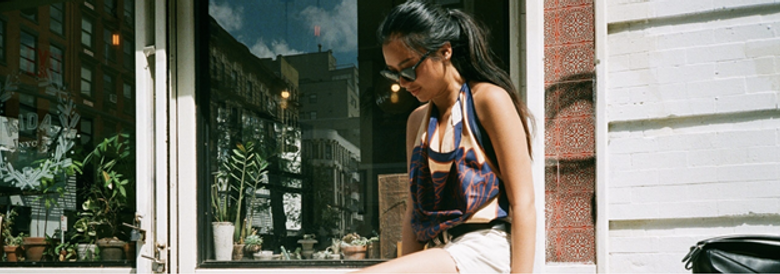
“Tell me a bit about yourself.”
This is usually the first statement someone will hear during a job interview...and a first date. Marisa Chentakul noticed this overlap and used it to push herself professionally. She leaned into the taboo to practice introductions and grow apart from her shy tendencies.
Her trick was to feel uncomfortable. And online dating, specifically through Tinder, allowed her to start from ground zero. While Marisa practiced introductions, she grew more confident in her speaking and ability to present herself the way she wanted to be perceived.
“I feel like Tinder is such a taboo, like people don't talk about that when it talks about professional growth, but someone just had to say it.”
When I asked Marisa to tell me about herself, she didn’t hesitate: “I am Marisa. And I am currently a product designer.”
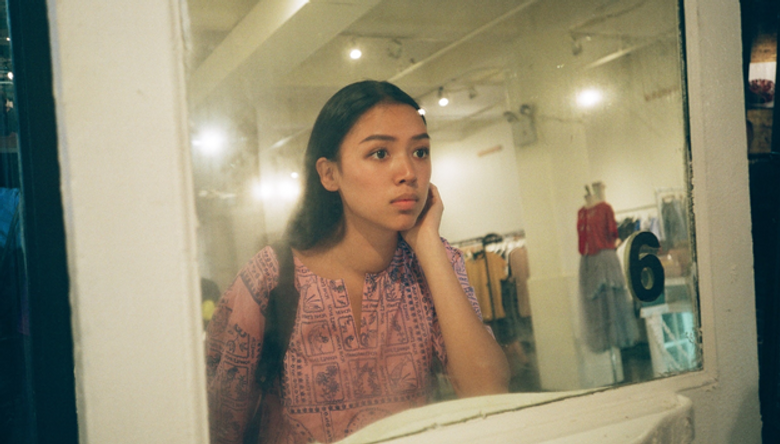
Marisa grew up inspired by her mother’s fashion label, which led her to take up fashion design. At 16, she attended fashion school and intended to take over her mother’s business after graduating college. Marisa admits she struggled with making friends and going outside of her comfort zone, but she sought to improve this. She compelled herself to take up public speaking, and would even record herself talking out loud in her room right before interviews. Now, she lets herself get excited to speak. Marisa thrives in the discomfort and is constantly pushing herself to new limits.
But during her last two years of undergraduate school in San Francisco, Marisa suffered a severe spine injury. For months, she lay in a hospital bed unable to sew and unsure if she would be able to go back into fashion at all. With little to do, but much to think about, she found herself distracted by product design. She saw how it created a lot of impactful work, and let herself get pulled into the field.
“[Product design] is like a melting pot of all my interests,” she said.
During her senior year of undergrad, Marisa juggled submitting her final fashion collection with picking up skills in product design. Newly inspired and newly healed, she was out to redefine her path as an artist in graduate school, from which she recently graduated in 2020.
“It’s almost like I lucked out. That injury really put me on the right track.”
Creating Community on TikTok and Twitter
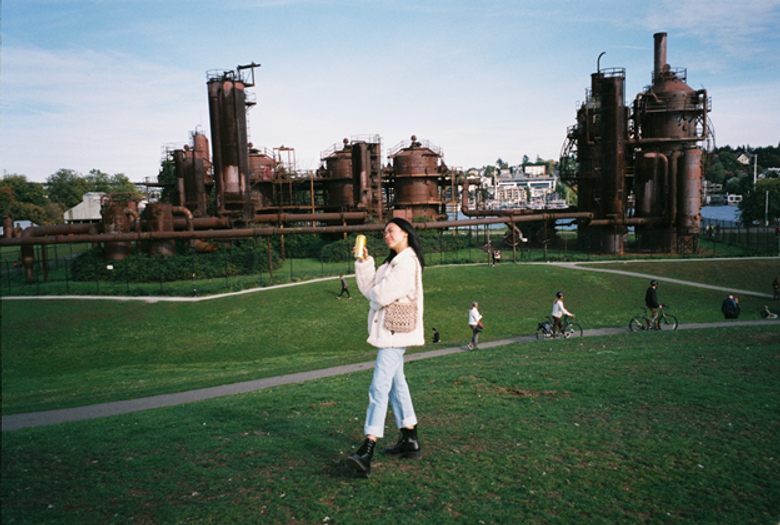
Like many at the start of the pandemic, Marisa found herself messing around on TikTok. Now, with nearly 70,000 followers on the platform, she uses it to market her skills as a designer and educate viewers about design.
“I think of TikTok as a two-way relationship. I make content to educate people. But at the same time, I'm building an audience and I'm also creating this digital business card for myself,” Marisa said.
Before TikTok, Marisa was applying to jobs through Glassdoor, LinkedIn and other popular professional platforms. But she was often turned down because of how young she is. This inspired Marisa to teach young designers through TikTok. She speaks to the importance of an effective digital presence, on an individual and professional level, and building genuine connections from the start.
“It’s scary at first, but it's worth it,” she said about networking early on.
A mentor of Marisa pushed her to make a Twitter account. Unsure and very shy, took a chance on social media, which she described to be incredibly rewarding. After plateauing in her job search, Marisa tweeted out her portfolio in hopes of finding a job. As a result of her growing digital presence on TikTok and Twitter, her tweet grew in numbers and she received numerous interview opportunities and referrals.
“I wouldn't be where I am today without social media,” she said.
Marisa notes how important it is to take a pause and recalculate when your current course of action isn’t working. If recruiters aren’t replying, many will ask if they should keep applying at all.
“Look for the side door and pivot; just do anything that you can.”
For example, sliding into a designer’s direct messages on Instagram or customizing your resumé to match a company’s branding; both of which she has done. It’s about setting yourself apart from the crowd, according to Marisa.
Pivots, pauses and transitions are natural and vital parts of a career. As Marisa was shifting into product design, she worked on a sustainable fashion Kickstarter, Mesh. Mesh is a “versatile, modular piece of fabric that can be configured into any form of clothing your wardrobe needs,” according to Marisa’s website. Users are able to build upon the small fabric pieces to make into clothing or items, like a mug holder. “So think, Legos for fashion,” she said when describing the fabric.

Marisa also created and co-hosts Design Picnic, a podcast that aims to support and inspire the Thai community by acting as a design resource. Being that there is a language barrier in the design field, with most resources being in English, Design Picnic was created to provide a space for the Thai community to actively listen and learn about design. The podcast currently has two seasons, featuring designers and design challenges, and its third season will focus on transforming the series into an education platform.
Community is a big theme in Marisa’s career path. Through her platforms and projects, she seeks to take down barriers and provide support for designers. She recognizes how intimidating this industry can be, especially for young designers seeking to make connections via social media. Marisa likes TikTok for its casual environment, and how friendly it can feel for those young designers. Having an impact makes being a designer that much better for Marisa, and seeing the influence of her designs and actions excite her, especially knowing that, “[she is] finally doing something useful for humankind.”
Invisible Experience, Lasting Impact
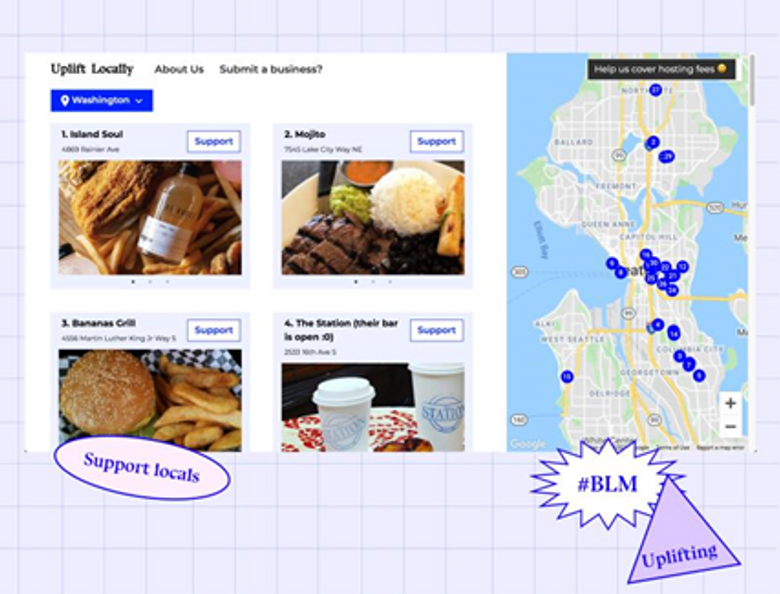
In a constant effort to give back to communities, Marisa always seeks to work with nonprofits and promote local and BIPOC businesses. For example, she is the founder of Mesh Times, a community for designers that provides resources and sells merchandise in support of education access. She is looking to be part of a mentorship program to teach high school and undergraduate students about design, especially those who don’t have a background in the field. Marisa hopes companies will begin to consider more junior designers as a part of furthering diversity efforts in the tech industry.
“I think diversity is not just about race or gender, it's about the skill set and giving them a chance,” Marisa said.
Opportunity, experience and background hold big stakes in career paths, especially in tech. With product design relying so heavily on communication, Marisa understands how daunting interviews can feel. When interviewing, no matter how the process went, she makes it a habit to check out social media accounts of interviewees to see what they do in their free time. This helps to emphasize who the interviewee is as a whole.
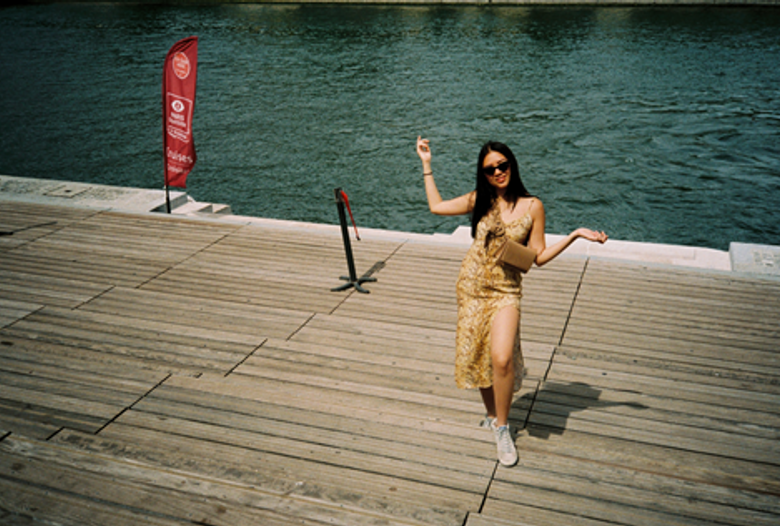
If it were up to Marisa, building a design team from scratch would be a dream. She noted how important it would be to give a junior designer a chance to work and gain experience for their resumé. Additionally, the team would consist of people with different cultures, backgrounds and abilities. Marisa recalls having a colorblind teammate who “always kept [her] on [her] toes” in terms of accessibility in designs.
Although so much goes into the creation of these designs, the execution of a product needs to be practically unseen. To Marisa, doing a good job means users have to worry less about what they’re interacting with.
“If you do a good job with designing something, whether it be a door or an app, you have to create an experience that is almost invisible,” she said.
While designers should strive for invisibility and comfort in their products, a designer’s willingness to push their comfort zone holds an important role, especially to Marisa. Aside from testing out Tinder, she signed up for networking activities, public speaking events and focused on making solid connections with those around her in addition to making her unique digital presence. Although intimidating, growing into these skills and roles is an incredibly formative experience.
Marisa wants young designers to know they shouldn’t feel pressured to stay with a certain major of focus. There’s no real linear route, and while navigating your goal is messy, it’s part of necessary growth.
“I feel like life is all about pivoting and adjusting yourself to the world because people change all the time, our interests change all the time. And it's okay to wear different hats and to have different job titles,” Marisa said.
You can find Marisa Chentakul’s portfolio here.
👉 Read Next: The Ultimate Guide to a Product Design Career
The information provided herein is for general informational purposes only and is not intended to provide tax, legal, or investment advice and should not be construed as an offer to sell, a solicitation of an offer to buy, or a recommendation of any security by Candor, its employees and affiliates, or any third-party. Any expressions of opinion or assumptions are for illustrative purposes only and are subject to change without notice. Past performance is not a guarantee of future results and the opinions presented herein should not be viewed as an indicator of future performance. Investing in securities involves risk. Loss of principal is possible.
Third-party data has been obtained from sources we believe to be reliable; however, its accuracy, completeness, or reliability cannot be guaranteed. Candor does not receive compensation to promote or discuss any particular Company; however, Candor, its employees and affiliates, and/or its clients may hold positions in securities of the Companies discussed.
